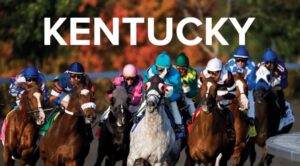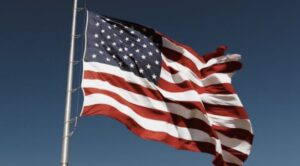Key Moments:
- The Nevada Gaming Control Board has stated that sports event contracts and similar wagers are considered betting under Nevada law.
- Entities offering such contracts must hold a nonrestricted gaming license with sports pool approval. This approval is required to operate legally in Nevada.
- Recent legal disputes have emerged between prediction market platforms and Nevada regulators. These disputes focus on how event contracts are classified.
NGCB Clarifies Regulatory Scope of Prediction Markets
The Nevada Gaming Control Board (NGCB) issued an official notice reaffirming its stance. It clarified that “sports event contracts”—including wagers on sports, esports, award shows, and elections—qualify as wagering under Nevada law. The Board’s new industry communication states that it oversees these contracts unless the operators are properly licensed within Nevada’s gaming framework.
In a two-page notice, the @NevadaGCB chairman declared that sports event contracts are wagers and any Nevada sports betting operator offering contracts in Nevada or another state could jeopardize their gaming license.
The comments followed remarks made during G2E.@TheNVIndy pic.twitter.com/1PnI6JZFz7— Howard Stutz (@howardstutz) October 16, 2025
Understanding Wagering Definitions Under Nevada Law
According to the NGCB, statutes NRS 463.0193 and 463.01962 are interpreted to classify offerings of “sports event contracts” and similar “other events contracts” as gambling activities. The Board applies this interpretation regardless of whether the contracts appear on a CFTC-regulated exchange or another platform.
The Board has outlined that any contract linked to the outcome, or partial outcome, of sporting competitions, poker tournaments, the Oscars, esports contests, and political elections comes under its regulatory authority. Operators may offer such products only if they hold a nonrestricted gaming license with sports pool approval. They must also comply fully with all statutory and regulatory obligations related to sports wagering in Nevada.
Regulatory Risks and Suitability Concerns for Licensees
The NGCB emphasized that companies operating or partnering with entities providing sports event contracts in Nevada or elsewhere could face regulatory consequences. These may include suitability reviews or disciplinary actions. Actions in other jurisdictions or breaches of tribal gaming agreements could also impact the Board’s evaluation. Such issues may affect a licensee’s character and suitability.
The Board stated that new licensing applications and ongoing licensee suitability will be closely examined for such activities. Any partnerships with unlicensed event contract operators may result in reevaluation or disciplinary measures. According to the NGCB, these contracts are essentially treated as indistinguishable from traditional wagering unless fully regulated and sanctioned under state gaming laws.
Broader Disputes and Legal Challenges
This announcement comes as conflicts continue between state gaming regulators, tribal entities, and companies supporting prediction market operations. These operations include both sporting and non-sporting events. Kalshi, a platform offering prediction markets, previously received a cease-and-desist letter from the NGCB. The company obtained a temporary pause that allows it to maintain Nevada operations during ongoing litigation. Robinhood Derivatives LLC filed a lawsuit against Nevada gaming regulators. It seeks a court ruling allowing the operation of sports event contracts without classifying them as wagering under state law.
The NGCB has raised concerns over a partnership between FanDuel and CME Group, due to the potential for event contracts designed as futures-exchange products. Crypto.com has encountered legal challenges related to its event contract offerings, with anti-gambling arguments being met with skepticism in court.
The regulatory landscape grew more complex after the CFTC decided not to appeal a ruling that allowed Kalshi to list political event contracts. This has added momentum to discussions around a possible federal regulatory framework for prediction markets.
A central issue in this debate is the intersection of federal and state regulation – the question of whether such contracts are securities or derivatives (regulated by the CFTC), wagers (regulated by state agencies), or both.
Compliance Considerations for Operators and Affiliates
Organizations involved in these markets must now determine if their activities will be classified as gambling under Nevada law and whether they can meet all necessary licensing and compliance standards. Affiliates and partners of Nevada licensees are advised to ensure that their operations in other jurisdictions fully comply with local regulations to avoid negative impacts on licensee suitability.
Tribal gaming interests may gain additional influence, as the NGCB has specified that violations of tribal compacts could provide grounds for regulatory actions. Ongoing litigation is likely to focus on constitutional and preemption issues as parties aim to define the boundaries of prediction markets under both state and federal law.
| Entity | Issue/Action |
|---|---|
| Kalshi | Received cease-and-desist, granted temporary operational reprieve during litigation |
| Robinhood Derivatives LLC | Filed suit seeking classification of event contracts outside state wagering law |
| FanDuel & CME Group | Subject of NGCB concerns regarding futures-exchange style event contracts |
| Crypto.com | Faced legal challenges over event contracts in Nevada |
- Author


